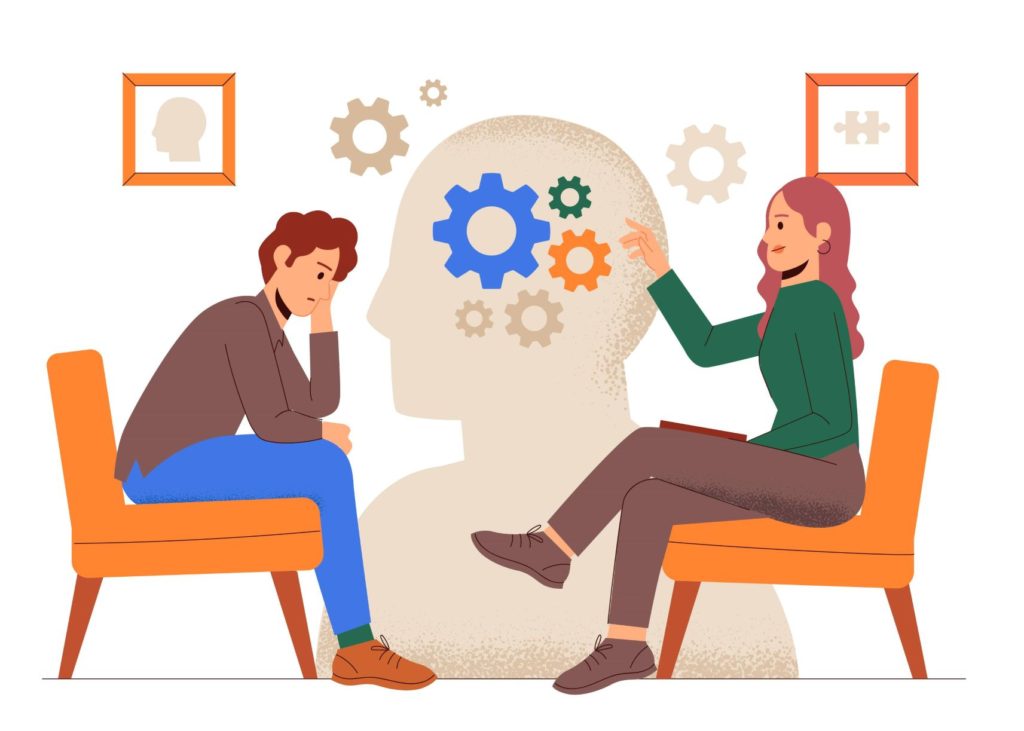Why is the healing process in therapy painful?
Therapy is a safe space for you to explore your life situation, the challenges that you are facing, your emotions, your thought process and how you respond to situations by facilitating the healing process. In this process you may also explore deeper emotions, past challenges, difficulties, learnings, trauma etc from earlier in your life.
The overall purpose of psychotherapy is for you to move towards your own goals, towards healing, towards growth. Having said that it is not an easy process and it may not be pleasant at all times.
Initially when you start therapy you would have a chance to talk openly about the things that are troubling you / bothering you. With the therapist’s attuned presence and listening you will feel understood and you might feel unburdened and better.
It is also possible that you may feel like stopping therapy at that time. But it is not recommended because sooner or later you will find the same feelings resurfacing, same issues coming back again, unless they are processed, resolved and addressed.
Why is emotional processing of past experiences towards healing in therapy painful?
Sometimes you may have repressed painful / traumatic experiences and corresponding emotions deep in your mind which may surface now and then, impacting you in an adverse manner – in terms of how you are affected by events or how you respond to situations etc. This could be one reasons why you may have sought therapy in the first place.
These painful emotions / experiences which you may have repressed (that may have been left unprocessed from earlier), may get uncovered in therapy and you might have an opportunity to process them in a safe setting in the therapist’s warm presence.
Healing process of a deep wound
As a therapist, I use many metaphors to bring in clarity in the process of therapy at multiple points. Let me share one here. Imagine that you have a deep wound in your leg which happened a while back. But it hasn’t healed completely. At the surface level the skin has healed but deep within the wound remains. So, any time you put some weight on that leg you would wince in pain. Though you manage to limp around and do your regular activities, but for sure you can’t run a marathon with that leg. And any time that you walk around you also need to be careful not to bump that leg against any other furniture or object for fear of having to experience sharp pain in that leg.
When you finally decide to go to see your doctor about it, the doctor would investigate, perhaps touch around the location of your wound and check your pain response, and might suggest a deeper investigation by opening it up.
Only when it is opened up the doctor might be able to see whether the wound is infected or whether it needs any cleaning or disinfecting etc. The doctor would give you a local anaesthetic, open up the wound, clean it and perhaps do a dressing and send you back home.
Back home the effect of the anaesthetic wears off and you are now in a lot more pain than what you were used to, limping around the house. Before the healing starts the pain might get worse. You might need multiple rounds of dressing before the pain start subsiding and the healing process starts.
Emotional wounds are similar in nature. In therapy old wounds might get opened up and you may feel worse in comparison to how you felt before therapy. You may have to work on that emotional wound, to talk about it, re-experience it, process it multiple times before the healing process starts. The therapist offers you a non-judgemental safe space, a holding presence, facilitates awareness and expression. The process may vary depending upon your therapist and their modality of working. Some wounds may heal sooner and some may need more time. It is key to stay with the process.
I usually offer this metaphor to my clients and ask them who they think is the doctor in the given scenario. And usually, they assume that the therapist plays the role of the doctor. And I tell them, No. You are the author and expert in your life. And you will need to play the doctor. As a therapist I facilitate the process but the work is done by you. I may bring in my understanding of psychology, human behaviour, methodologies, frameworks, tools etc, but the effort, decision and action comes from you the client.
About the Author:
Kala Balasubramanian is a certified Counselling Psychologist and Psychotherapist with a Masters in Counselling and Psychotherapy, Diplomas in Counselling and has further certifications specializing in couple/marriage/relationship counselling and family counselling. As a trained therapist, she provides professional and confidential counselling services including Individual counselling and Couples counselling / Marriage counselling.
Currently with the COVID-19 situation, all counselling services are offered online over video calls. Reach us at +91 9632146316 or write to us at counselor@innerdawn.in.

